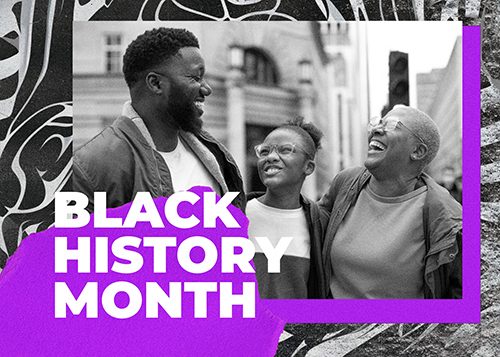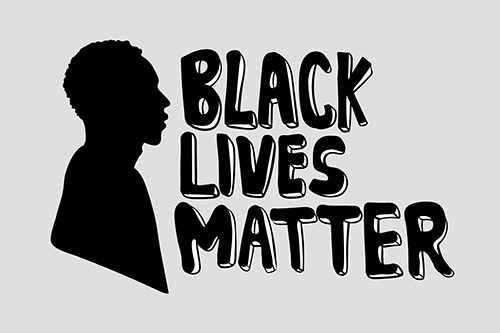Every February, we embark on a journey of remembrance, celebration, and education as we observe Black History Month. Originating in the United States but now recognized and celebrated globally, Black History Month serves as a vital time to reflect on the contributions, struggles, and triumphs of Black individuals and communities throughout history. In Canada, this celebration coincides with African Heritage Week, emphasizing the rich cultural tapestry woven by people of African descent across the nation. It’s a time to embrace diversity, acknowledge historical injustices, and celebrate the resilience and achievements that have driven humanity forward.
The Origin of Black History Month:
Black History Month traces its roots back to the efforts of historian Carter G. Woodson and the Association for the Study of Negro Life and History (currently known as the Association for the Study of African American Life and History) in the early 20th century. Woodson, recognizing the need to bring attention to the often-overlooked contributions of Black Americans, established Negro History Week in February 1926. This week was chosen to coincide with the birthdays of Abraham Lincoln and Frederick Douglass, two pivotal figures in the fight against slavery and for civil rights in the United States.
The importance of Black History Month lies in its ability to shed light on the often marginalized narratives of Black individuals and communities. By dedicating an entire month to the celebration and study of Black history, we honor the resilience and contributions of those who have faced oppression and discrimination, while also recognizing the ongoing struggle for equality and justice.

The True North Strong and Free:
While most discussions of African slavery focus on the United States, it was not the only nation with a shameful blight in its history. In Canada, the history of African slavery is a complex and often overlooked aspect of the nation’s past. While slavery was officially abolished in the British colonies, including Canada, in 1834, the legacy of African enslavement continued to shape Canadian society for generations. Enslaved Africans were brought to Canada by European colonizers, primarily for labor in industries such as fur trading, agriculture, and domestic service. Many Black Canadians today are descendants of enslaved individuals who endured unimaginable hardships and contributed to the development of the country. The practice of slavery in Canada may have been less widespread than in other parts of the Americas, but its impact on Black communities and the broader social fabric of the nation cannot be understated. Recognizing and confronting this painful history is essential in understanding the struggles and resilience of Black Canadians and working towards reconciliation and justice.
The Enduring Legacy of Civil Rights Achievements:
One of the most significant aspects of Black History Month is the celebration of civil rights achievements. From the abolition of slavery to the landmark legislation of the Civil Rights Movement, Black individuals and communities have been at the forefront of the fight for equality and justice. In Canada, figures like Viola Desmond, often referred to as the “Canadian Rosa Parks,” and the many activists of the Underground Railroad who helped enslaved individuals escape to freedom, exemplify the spirit of resistance and determination that has characterized the struggle for civil rights. Viola has since been honoured on Canada’s $10 bill for her brave defiance of unjust racial segregation in Nova Scotia.
Important Advances in Science and Healthcare:

Black history is replete with trailblazers who have made significant contributions to the field of healthcare. From pioneering surgeons and medical researchers to public health advocates, Black individuals have played a crucial role in advancing medical knowledge and improving healthcare outcomes for all. In 1861, Dr. Anderson Abbott became the first Canadian-born Black physician and surgeon. Having served as a civilian surgeon during the American Civil War, he helped pave the way for countless talented physicians who would follow in his footsteps.
The following are merely a few of the exceptional pioneers who redefined the landscape of science and healthcare around the world. Charles Drew’s blood preservation techniques led him to establish the world’s first large-scale blood banks that have saved countless lives. Percy Julian pioneered a chemical synthesis of medicinal drugs such as cortisone, steroids, and birth control pills.
Driving the Economy through Business Entrepreneurship:
In the realm of business and entrepreneurship, Black Canadians have made remarkable strides, despite facing systemic barriers and discrimination. From early entrepreneurs who established thriving communities in the face of adversity to modern-day innovators and business leaders, Black Canadians have played a vital role in driving economic growth and prosperity. Figures like Rosemary Brown, the first Black woman to be elected to a Canadian provincial legislature, and Michael Lee-Chin, a prominent business magnate and philanthropist, exemplify the resilience and entrepreneurial spirit of Black Canadians.
South of the border, Oprah Winfrey is one of the most recognizable women in the world – despite her humble beginnings, she built an immense media empire that has amassed her a personal net worth of over USD 2.5 billion. While Michael Jordan will always be remembered as a basketball all-star, his business savvy is no less impressive with numerous lucrative licensing deals since his retirement. Robert and Sheila Johnson may not be common household names. Still, as the founders of BET (the Black Entertainment Television Network), they played a major role in shaping media across the United States.
Revolutionizing Technology that Changed the World:

The impact of Black individuals on technology and innovation cannot be overstated. From the contributions of inventors like Lewis Latimer, who played a key role in the development of the electric light bulb, to modern-day pioneers in fields like artificial intelligence and computer science, Black innovators have shaped the technological landscape in profound ways. In Canada, initiatives like the Black Professionals in Tech Network are working to promote diversity and inclusion in the tech industry, ensuring that future generations of Black Canadians have opportunities to excel and innovate.
Some notable tech pioneers include Katherine Johnson and Annie Easley, who leveraged their impressive mathematical talents to revolutionize American aeronautics and space programs. Walter Hawkins is credited with developing a polymer coating for telephone wires, a breakthrough that enabled universal service. Additionally, Gladys West applied her mathematical and programming skills to develop an accurate model of Earth, laying the groundwork for modern Global Positioning Systems.
Art, Culture, and Literature that Defined Generations:
Black History Month also provides an opportunity to celebrate the rich artistic and cultural heritage of Black communities. Black Canadians have made enduring contributions to the cultural landscape, from literature and music to visual arts and performance. Figures like Oscar Peterson, a legendary jazz pianist, and Esi Edugyan, an award-winning novelist, have garnered international acclaim for their contributions to the arts. By highlighting the achievements of Black artists and creators, we acknowledge the power of culture to inspire, educate, and unite.
Beyoncé, Rihanna, Alicia Keys, The Weeknd, Michael Jackson, Whitney Houston, Prince, Ray Charles, Tina Turner, Jimi Hendrix… From Jazz to R&B to Rap and everything in between, numerous Black singers and musicians have been influential trendsetters for generations. When it comes to acting, some of Hollywood’s biggest names and recognizable faces are Denzel Washington, Morgan Freeman, Samuel Jackson, Will Smith, Ernie Hudson, James Earl Jones, and Eddie Murphy. The late Maya Angelou is renowned around the globe as a poet, dancer, singer, activist, and scholar. Muriel Tramis, the first Black female video game designer created dozens of best-selling games in the 1980s and 1990s, leading Coktel Vision to become one of France’s biggest game publishers.
The Importance of Education and Advocacy:

In 2023, a global survey of over 17,000 people from 36 countries was conducted to rank the top 87 countries in numerous categories. Regarding racial equality, Canada was ranked #2 overall, closely trailing New Zealand. By comparison, our American neighbours were embarrassingly ranked at #73.
Is there still room for improvement? Absolutely.
“Without Social, Economic, and Political Equality, There is No Freedom” – Dr. James A. Forbes, Jr.
As we celebrate Black History Month, it’s essential to recognize the importance of education and advocacy in advancing racial equality and social justice. Black History Month serves as a platform for raising awareness about the ongoing challenges faced by Black individuals and communities, from systemic racism to economic inequality. Through educational initiatives, community engagement, and grassroots activism, we can work towards a more inclusive and equitable society for all Canadians.
Conclusion:
As we reflect on the significance of Black History Month, let us reaffirm our commitment to honoring the triumphs, advancements, and diversity of Black individuals and communities. By acknowledging the injustices of the past, celebrating the achievements of the present, and working towards a better future, we can build a society that values and respects the contributions of all its members. In the words of civil rights icon Maya Angelou, “History, despite its wrenching pain, cannot be unlived, but if faced with courage, need not be lived again.” Let us face the challenges of the present with courage and determination, knowing that the legacy of Black history is a testament to the resilience, strength, and enduring spirit of humanity.
ABM College aims to provide everyone with the advantages they need to thrive in the job market. Get in touch with our admissions advisors today to see which program is the best fit for you!
About The Author

Content Editor & Writer, ABM College
As Content Editor at ABM College in Calgary, Alberta, Stephen plays a key role in advancing the college’s mission to provide relevant, high-quality training for today’s job market. He ensures all blog articles and web materials are accurate, clear, and genuinely useful for students, career changers, and industry professionals.
Stephen is also the author of a best-selling historical reference series documenting decades of computer and video gaming history — a body of work recognized by the Canadian Choice Awards.
Connect with Stephen on LinkedIn, explore his published works at Falcon Designs, or see his editorial expertise in action on the ABM College Blog.
